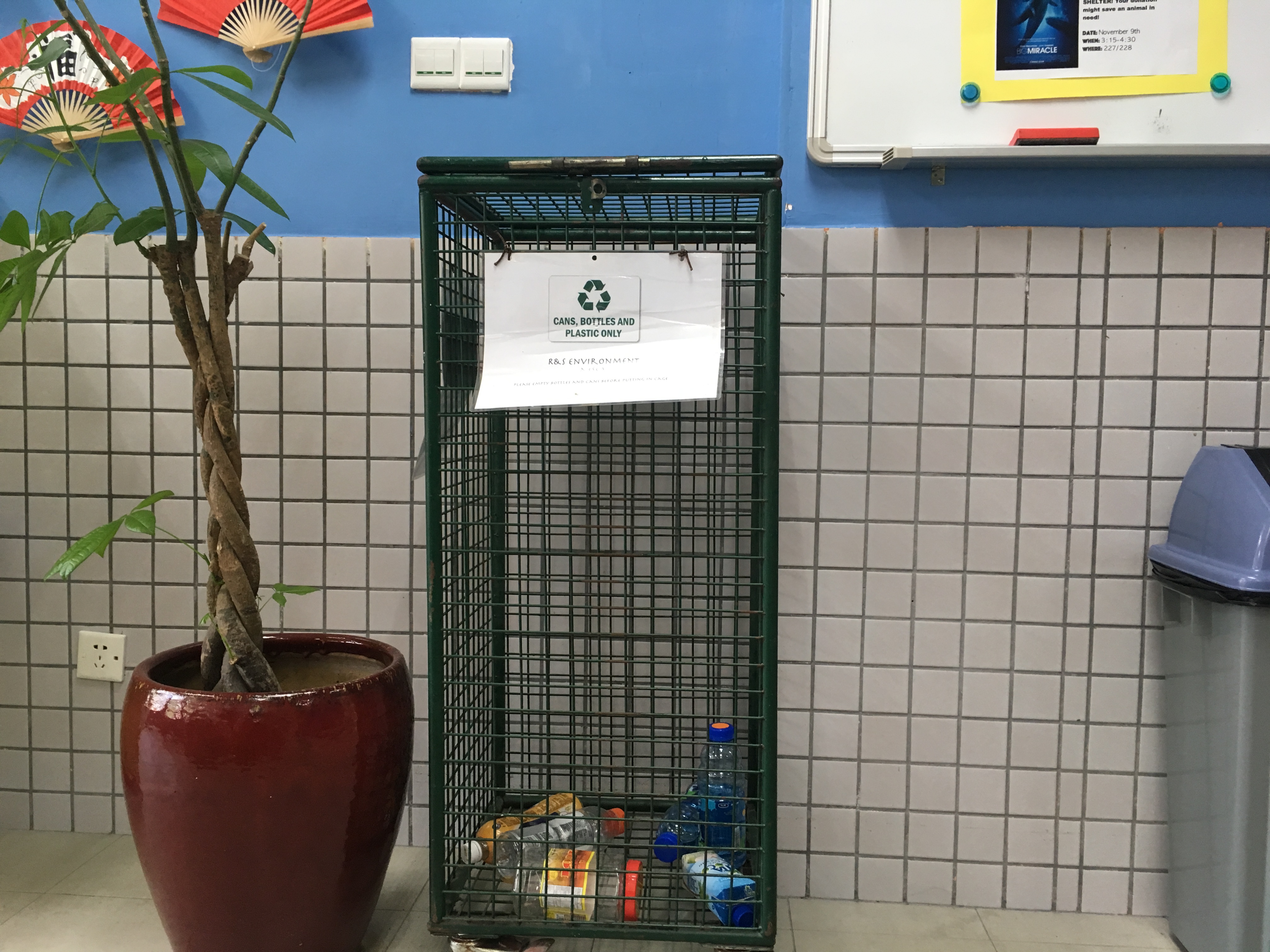
Recycling is one of the easiest and most common ways to reduce pollution and help the environment. Recently, some questions arose: What is recycling like at AISG? Do we actually recycle? Can it be improved? I set out to answer these questions because I was curious myself since I have seen almost no recycling during my time here.
I surveyed a total of 78 students about their recycling habits. Only 16.5% of these students recycled all the time, while 19% did not recycle at all. The majority of students only recycled some of the time. Out of those who recycled, 73% of students said they recycle paper, while 57% also said they recycled plastic. Out of these 78 students, only 15 said they recycle aluminum cans. When asked if they thought recycling was important, the responses were nearly unanimous. Everyone seemed to agree (save for three responses) that recycling was important for the environment, especially seeing as how we have limited resources on earth. Another question from the survey was “Do you think AISG does a good job promoting recycling? What could they do better?” Almost every respondent replied “No.” The range of ideas to promote recycling were wide. Some suggested adding more recycling bins in the halls, saying “…most students don’t like to walk around and find one recycling bin every 10 miles.” Others suggested getting rid of the plastic containers in the cafeteria, and some thought that active campaigning, such as posters, was the way to go. One student replied, “I just think people are skeptical about whether or not the stuff we put in recycling bins ACTUALLY gets recycled.”
I then interviewed Mr. Tragert about the recycling that goes on at AISG. When I asked if he thought recycling was widely encouraged at AISG, his response was the same as everyone else’s: “No.” He then went on to say “[Recycling] is not currently encouraged actively, it’s encouraged passively.” This again matched the responses of many students. I asked how he thought recycling could be further encouraged, he suggested many of the same things the students did, such as posters and more recycling bins. He replied, “I asked school services to order 96 recycling trash cans, where it has a trash can for trash, a trash can for paper, and a trash can for plastic.” He said these will be placed in every classroom, making it easier and more convenient to recycle. For example, if a student ate lunch in class, they could then recycle their container instead of walking down the halls to find a bin or simply throwing it away. He also said “We could also do more in the cafeteria. We’re working on getting rid of the plastic and getting biodegradable containers.” He believes that recycling should not be required, but believes we should be educated and encouraged to recycle.
Mr. Tragert’s responses matched up almost perfectly with what the students believe. I asked him another question that has been on some students’ minds: What is done with the materials that we do recycle? Mr. Tragert told me, “It’s collected, and when there’s a significant quantity, we use an outside company to come and pick it up.” Other students were concerned about our food waste. In response to this, Mr. Tragert said that they’re “working with a non-profit organization to come every day and pick up the leftover food from the cafeteria and take it to homeless people.” He also said that they “currently have a place to recycle batteries, but no one knows about it.”
Overall, almost everyone agreed that recycling is important and that recycling at AISG should be more actively encouraged. While most people at this school recycle paper and plastic frequently, many don’t recycle aluminum cans, and almost no one knows that there is also a place for battery recycling. AISG needs to encourage recycling more in order to become a more environmentally friendly school and reduce our carbon footprint.